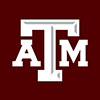In a crowded hotel conference room, groups of teachers cluster around tables with tubs of water, tuning forks, and other materials sitting on top. The teachers take turns tapping a tuning fork against plastic and then touching the different objects — printer paper, card stock, and plastic — to hear how the sound changes pitch. One of the teachers strikes the tuning fork against the table and thrusts it into the water. Vibrations from the tuning fork splash the water onto the table, showing energy transfer.
“So what is happening between the tuning fork and your materials?” asks Allison Esparza, the research specialist leading the instructional modeling activity.
This demonstration of energy transfer was part of the Dual Language & Literacy Institute (DLLI), a two-day teacher professional development workshop on supporting English academic language growth in English learner students. The Center for Research & Development in Dual Language & Literacy Acquisition (CRDLLA) and Education Leadership Research Center (ELRC), both housed in the College of Education and Human Development at Texas A&M University, hosted eight DLLI sessions for Texas teachers and school leaders over the summer.
“The DLLIs are part of our efforts to share the results and products from Project English Language & Literacy Acquisition – Validation (ELLA-V),” said Dr. Rafael Lara-Alecio, Regents Professor and the project’s principal investigator.
Dr. Beverly J. Irby, College of Education and Human Development Associate Dean for Academic Affairs, and Dr. Fuhui Tong, associate professor, are his Co-PIs. Project ELLA-V is an Investing in Innovation (i3) validation study on English language development in grades kindergarten through three. It wraps up this summer.
“We know the innovations developed through ELLA-V are effective, so we want to get these out to teachers and school districts as much as possible,” Dr. Irby added.
A total of 260 teachers and school leaders from around the state of Texas attended the professional development. During the sessions, they learned how to apply the ELLA-V strategies and curricula in their own classrooms and schools. Each attendee got a complete set of the ELLA-V instructional materials for their grade level and 13 professional development hours.
“I am completely amazed and grateful for the hospitality, opportunity, resources, and information given to us,” said Bryan ISD bilingual teacher Ixchel Hernandez-Saenz. “I walked away informed and ready to advocate.”
“As an instructional specialist, I am always eagerly seeking tools and strategies to share with the teachers I cooperatively work with to facilitate academic success for our English learners. This institute’s focus was on K-3 academic instruction in science. What I especially loved were the EL best practices presented emphasizing: listening, speaking, reading, and writing the academic language. They were modeled by very knowledgeable educators who have used them in the classroom. We, the participants, were also given the opportunity to practice them as well,” she said.
“My experience at the Dual Language and Literacy Institute with Dr. Lara-Alecio and his team has been a game changer in my professional role as a bilingual/ESL coach,” said Ana Carlton, a bilingual/ESL specialist with Spring ISD. She attended all four grade-level sessions.
“Not very often we (educators) have the fortune to learn directly from the researchers; we usually get some pieces based on an article or a compilation of different studies. This priceless institute provided me with the rationale, methodology, data, and instruments of an effective framework that supports second language acquisition. I am very excited to start the school year modeling lessons to my dual language teachers using the materials!”
